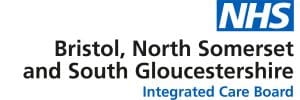ICS diverse Research Engagement Network is awarded £150,000 in NHS funding
The Bristol, North Somerset and South Gloucestershire Integrated Care System (ICS) has received funding for the second phase of the Research Engagement Network (REN) programme by NHS England.
Our local Research Engagement Network, which has been led by Caafi Health, has been awarded £150,000 to further develop its ambition to create trusted relationships between health and care organisations and people within ethnically diverse communities to further enhance the benefits communities receive from involvement in research.
The programme is a collaboration led by voluntary, charitable and social enterprise organisations across the Bristol, North Somerset and South Gloucestershire area and supported by Bristol Health Partners. Evaluation is being developed by the National Institute for Health and Care Applied Research Collaboration West (NIHR ARC West).
As part of the first phase, the programme recruited Health Research Ambassadors from diverse communities across Bristol to assist with engaging with local people to establish their health needs and determine where health and care could be improved, developed or where further research could be explored.
The awarded funding will now be used to go towards increasing the programme’s reach to a range of communities in the region and facilitate research that matters to those communities. The second phase of the programme also aims to fund training for health care professionals on decreasing inequalities in health and care to improve outcomes for people who are from a marginalised background. It will also be used to develop a collaborative database where insights can be shared across ICS organisations to enhance research knowledge sharing.
Bristol, North Somerset and South Gloucestershire ICB Research Manager, Paul Roy, said:
“We are delighted to receive this funding to further enhance the programme, increasing our ability to work collaboratively as an ICS to reach ethnically diverse communities.
“The Research Engagement Network programme aims to learn about people’s health needs and gain insights into what people need from our health and care services, as well as building a system of knowledge sharing so we can improve and develop services accordingly. I am pleased to be a part of this work.”
“By having one database that is accessible to all organisations in our ICS, we can spread what we know about our local population and their health. This also helps us be more productive and ensure research is addressing different aspects of health and care instead of duplicating what data we already have.”
Network members representing communities and organisations have welcomed the opportunity to enhance the programme.
Public Contributor and Community Advocate, Primrose Granville, said:
“Change is uncomfortable yet inevitable, in a world full of innovation. Working with Bristol Health Partners on the establishment of a diverse research network project has been an amazing experience. From listening to concerns raised about health equity, to doing everything possible to make it happen, Bristol Health Partners has demonstrated what working together should be. From engagement with public contributors, researchers, clinicians and partners, the journey has been most productive and beneficial for the Bristol, North Somerset and South Gloucestershire Integrated Care Board.”
Jean Smith, from Nilaari, said:
“After feeling unsure that anything will really change, now some months on I really believe I’m journeying with folks that listen and are determined do things differently.”
Huda Hajinur and Asha Mohamed, at Caafi Health, said:
“We believe those most impacted by health inequities should have a say in how their research data are collected and interpreted, and that communities should play a leading role identifying their own health challenges and developing solution through research.
“Through the REN project we acknowledge that the roots of inequities are tied to a legacy of historical trauma in communities. We recognise that solutions to health research inequities can often be found within the strength and resilience of communities. We also recognise that research health equity cannot be achieved without naming the impacts of structural racism and working toward racial equity. Leading with race allows us to understand the health of all communities more clearly across Bristol, North Somerset and South Gloucestershire. Working as part of network of leadership through the REN has been a unique and positive experience that can shape the future how research is conducted.”
Aaruni Suresh, also from Caafi Health, added:
“It has been an absolute pleasure to meet these incredible individuals and be a part of this project team. Everyone has been incredibly helpful and supportive, making this experience great. I am confident that this project will bring communities and researchers closer together, ultimately leading to a brighter and healthier future.”

